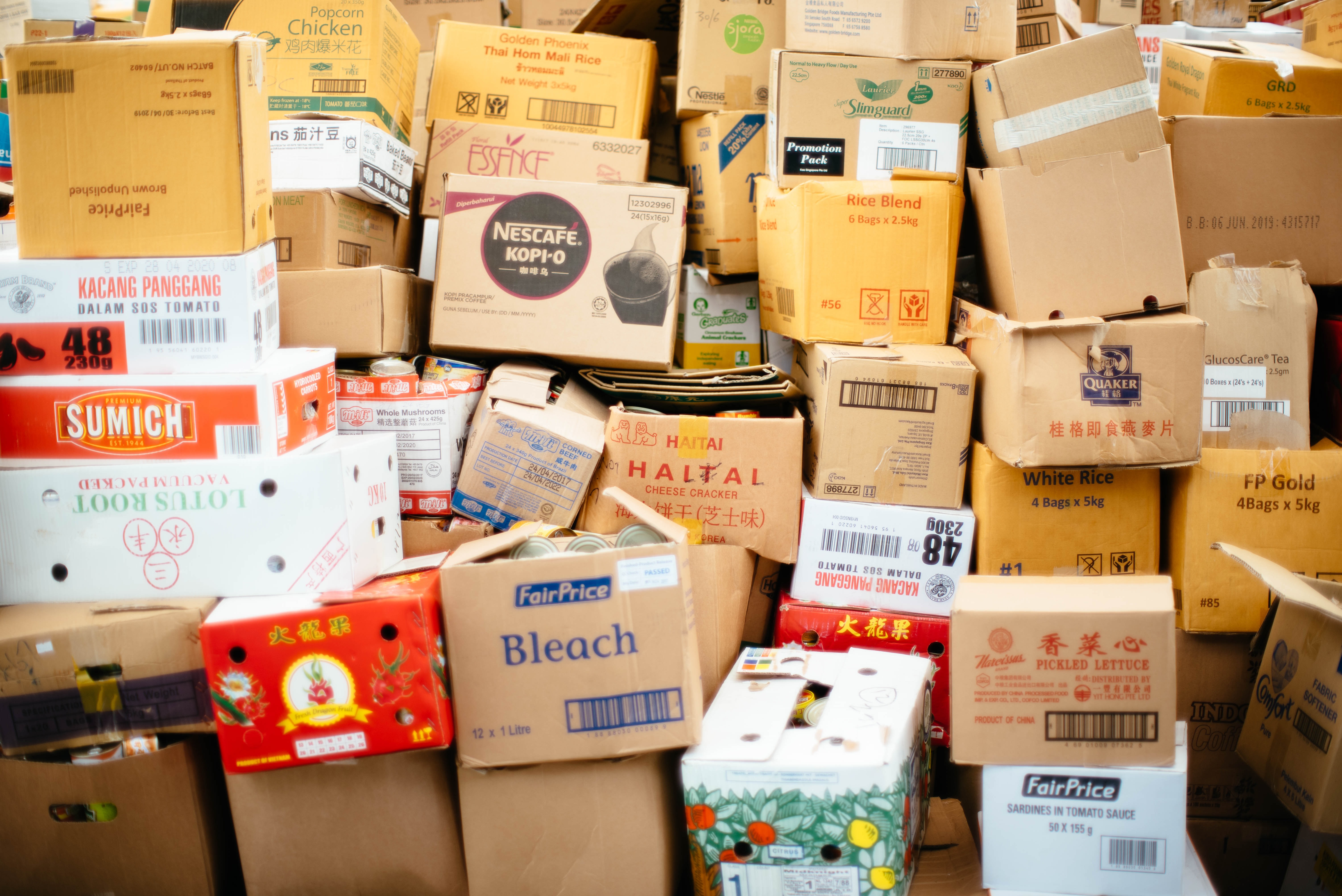Sometimes we just don’t have enough space in our homes for the things we want to keep or save for a later date. This doesn’t mean that they should just be discarded haphazardly into a storage unit however. In order to protect your valued items, we’ve created some tips and tricks for how to store items safely and to avoid damage.
As a general rule of thumb, cleaning all items before putting them into storage is essential. Whether items will be stored for short or long term, ensuring they are clean keeps them protected from stains setting, build up of germs or even mold. This tip applies to everything from clothes and shoes to large pieces of furniture, and even electrical equipment. Besides, there’s nothing worse than pulling something out of storage and not being able to use it right away because it needs to be cleaned or has deteriorated in some way.
Another pro tip is to be careful with wrapping items in newspapers. Wrapping delicate items reduces the risk of them being broken while transporting and storing, however over time the ink from newspapers can transfer onto these items and damage the quality. So to prevent your fine china having clippings from your tabloid of choice, use acid-free paper instead.
How to store clothes
As mentioned above, cleaning your clothes goes a long way to keep them in good condition in long term storage. An important thing to remember is removing stains before you place clothes into storage. This prevents the stains from setting into the clothes and being impossible to remove further down the line.
Knowing how to store items of clothing can mean the difference between your clothes coming out and needing many repairs, or ready to use. Did you know that clothes need air to keep the integrity of the fabric? When thinking of putting clothes into long term storage, many people will consider using vacuum-sealed bags to store items as it keeps moisture out and reduces the space the clothes take up. However, without the presence of air, the fibers will start to deteriorate after a little as six months and will cause damage to your clothes. We recommend using plastic storage boxes with clip-on lids to store clothes, as the clothes will still be protected from the elements but have enough room to breathe.
Consider what you are going to be reaching for first while you are packing your clothes. If you are storing seasonal items or clothes for future events, keep those that are coming up soon at the top or front of your clothes storage. Packing clothes by season is also a good way to be able to find what you need quickly without having to rummage through so many boxes.
How to store shoes
Much like removing any stains from your clothes to prevent deterioration, polishing any leather or faux leather shoes before storing makes a big difference. Putting on that extra barrier can protect the shoes from damp environments where they might become hard or even shrink.
This next tip actually has two benefits: stuffing your shoes with tissue paper. Not only does this help to absorb any moisture and keep your shoes dry, it also helps them retain their shape. Misshapen shoes can be put right through use over time, but you want to be able to grab them from storage and go, without having to think of how you need to fix them. Depending on how the shoes have changed shape while in storage, it could also be fairly uncomfortable to wear them the first few times, so stuff those shoes!
In a similar note, ensuring that all shoes are placed in an organiser or separate boxes will also help keep their shape. This is because they won’t be squashed by other items that you may need to place on top of them.
How to store books and media
Dust and moisture can be particularly damaging to books over time. The paper becomes more fragile, mold can form and the ink fades. One way to protect against this happening to your valued collection is to wrap each book in a plastic sleeve or cover. This will provide protection for the printed cover and spine, as well as the pages inside and the glue that holds it all together.
Other media that you might want to store in self-storage units could include CD and DVD collections. These can often take up large amounts of space when kept in their original cases. If the sentimental aspect of these cases isn’t so important to you, consider using disc binders to store your CDs and DVDs in order to save space. This will also help to keep all your discs in one place, and is easily transportable.
How to store documents
Whether you need storage for your business or personal items, storing documents in a safe way is extremely important. You need to be able to find specific documents quickly, so labeling your storage effectively by date or topic (or even both) will help you navigate with ease.
Like many things, documents in transit can be damaged by being able to move around too much. Packing out your boxes of paperwork with filler materials (like shredded paper or tissue paper) can prevent accidental folding or creasing of important documents. Additionally, putting in a couple of silica gel packets can help if any moisture gets into the boxes.
Paper is particularly susceptible to water damage as you well know. So with that in mind, when storing important papers, ensure that they are raised off the floor so that they will not be damaged in the event of a flood or burst pipe.
How to store tech and appliances
While we are giving tips for how to best store your items, we cannot guarantee that nothing will affect them. With that in mind, any information on technology that can be backed up onto a harddrive should be. You don’t want to lose out on any important information that you may need in the future.
Tech is no different from all other things that you can store, including the need to clean it beforehand. This includes wiping down any screens and getting crumbs out from between the cracks in keyboards.
Dust and storage goes hand in hand, and with dust comes damage. For technology, dust can cause buttons and sockets to become jammed if they are not kept clean. There is a simple solution however, and that is covering all technology with a dust sheet. This will prevent dust settling on your PC, consoles, and whatever else you may need to store, and keeps it ready for the next use.
While it may be tempting to leave batteries with your tech so you don’t have to worry about finding new ones the next time you want to use it, make sure that you do not store batteries in these items. Over time, batteries can leak so if they are placed in items like remotes or games, it can render them unusable from the damage. Don’t throw away all your money on electronics for a couple of batteries- remove them!
Much like paper documents, tech is easily damaged by moisture and can be very costly to repair. Popping in a few silica gel packets to capture any moisture in and around your electronics can save you a lot of money and hassle.
Removing any cables that can be unplugged from your electronics can save damage to not only the cables themselves but also the sockets that they go into. Make sure that when you remove the cables, you keep them with the piece of tech it comes from and that if you wind it up, it is not too tight. Cables being wound tightly, while keeping them together and tidy, can cause the wires to break and for you to need to buy new ones.
How to store furniture
It is often necessary to store larger pieces of furniture, so dismantling these before placing into storage saves space. On top of that, items that can be disassembled are less likely to break once they have been compared to being moved in one piece.
Dust and moisture are common themes in storage tips, and furniture is no different. You should aim to loosely wrap all furniture in a fabric covering so as to prevent dust and moisture from damaging them or needing excessive cleaning once they are removed from storage. Raising furniture off the floor or putting a cover over the floor can also prevent moisture from seeping up into the furniture and causing further damage.
Another protective covering you can place on furniture is to wax any wood to help protect it even further from damp and moisture. Bubblewrap is also essential when moving and storing glass, so keep it wrapped!
With all of these tips in mind, you now know how to store items for indefinite periods in one of our self storage containers! For more information or advice, please
contact our team today.


